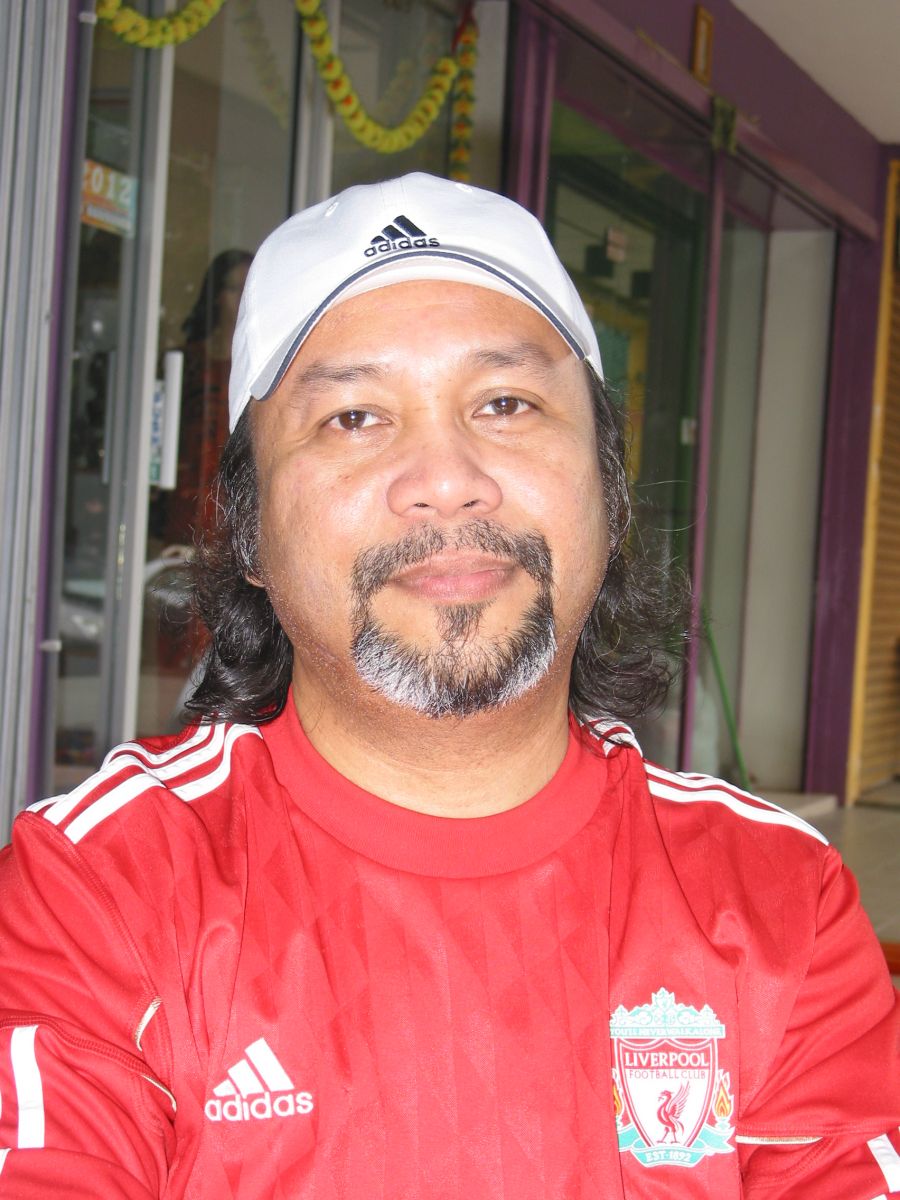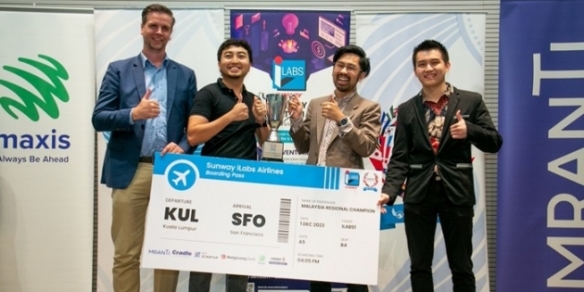Diabetes device start-up seeks crowd-funding boost
By A. Asohan January 30, 2013
- Made and developed in Malaysia medical device that can save lives and give loved ones peace of mind
- Geob International has to go the crowd-funding path because potential investors want to see revenue first
 GEOB International Sdn Bhd has launched a crowd-funding drive to bring to market the first batch of its HypoBand medical alert device for diabetes patients.
GEOB International Sdn Bhd has launched a crowd-funding drive to bring to market the first batch of its HypoBand medical alert device for diabetes patients.
The company, which last year was awarded an RM150,000 (US$49,140) grant by Cradle Fund Sdn Bhd, has launched a pledge drive on PitchIN, the Malaysian version of Kickstarter, seeking US$18,000 in funds to help it move into the production stage after failing to attract funds from venture capitalists (VCs) or angel investors.
While most of the VCs and angels the company has seen in the past year “loved the idea and were very supportive, they wanted to see revenue generated first,” said Geob International founder and chief executive officer Geoffrey Tan. “They want market validation before they come in.”
Geob International’s dilemma is perhaps indicative of how much harder it is for an actual technology hardware company to get investors on board, especially in Malaysia.
Unlike with the software or e-commerce play, where the money can dispersed over a period of time to pay salaries or fund marketing plans – and where said investor can pull out at any time things do not seem to be working out – hardware companies would generally need a lump sum to get started.
Tan and his co-founder Brandon Beh, also the company’s chief technology officer, approached Cradle about a year ago. “When they shared their vision with us, we were impressed and got fully behind it,” said Johnathan Lee, vice president of commercialization and ventures at Cradle.
Geob International was awarded the grant of RM150,000 and also participated in Cradle’s Coach and Grow Program (CGP), an entrepreneur training and mentorship initiative. Cradle is the venture capital arm of Malaysia’s Ministry of Finance.
“They were in the CGP’s ‘Top 10’ in terms of how quickly they developed the idea and did the R&D to bring their idea to fruition,” said Lee, who not only officiated at the launch of the PitchIN drive but immediately pledged US$100. “I have a wife and mother who have to manage diabetes, so I know how much peace of mind a device like this can bring.”
 Still, despite the rave reviews the company has got, it now has to seek funds via PitchIN. According to Tan (pic), the company has had to purchase the raw materials necessary to manufacture the first 1,000 units on credit.
Still, despite the rave reviews the company has got, it now has to seek funds via PitchIN. According to Tan (pic), the company has had to purchase the raw materials necessary to manufacture the first 1,000 units on credit.
“Typically, research houses charge about RM500,000 for the kind of work we needed – we managed to find a smaller R&D outfit which, ultimately, did very good work for us at a bargain price,” he added.
The devices would be made at co-founder Beh’s factory in the state of Kedah, which also acts as an original equipment manufacturer for printed circuit boards and LEDs (light-emitting diodes). Tan and Beh – Geob is an amalgamation of their first names – come from a mechanical and electronic engineering background.
The HypoBand, aimed at tackling hypoglycemia or low blood-sugar attacks in diabetes patients, is a medical bracelet that works in conjunction with a smartphone. The bracelet has a Honeywell sensor that monitors humidity and temperature, since hypoglycemia is generally characterized by the breakout of cold sweat. “Statistically, about 80% of such attacks,” noted Tan.
When the wearer suffers a hypoglycemia attack, the HypoBand – paired with the patient’s smartphone via a Bluetooth connection – will automatically send out a call or SMS to designated caregivers so that they can intervene. Many such attacks occur at night when the patient is asleep – and unaware – that his or her blood sugar level is running dangerously low.
The device also comes with a ‘panic button’ for the user who is conscious that he may be suffering an attack.
This first version works only on the Android platform; a second version for Apple’s iPhones will be developed if the company’s initial push is successful enough. The smartphone app itself was also developed by Geob International.
The device will retail for US$160 (RM480), although PitchIN participants can get it at US$100. The closest in terms of competing devices on the market are merely panic button bracelets ranging in price from US$150 to US$500, with no smartphone app.
Personal investment
According to World Health Organization statistics compiled by Geob International, 347 million people suffer from diabetes attacks globally, and there is one diabetes-related death every 10 seconds. After the preamble to his presentation at the PitchIN launch, Tan noted, “Two people somewhere in the world have just died.”
He also said that one in eight Malaysians suffer from diabetes, and 50% of them do not even know they are suffering from the disease. “That’s about three million Malaysians at risk, and we estimate there are about 400,000 in Singapore as well,” Tan added.
“Generally, it’s about 10% of the population in the countries we have researched. That means in this room right now, five of you have diabetes, and at least two of you probably don’t know it,” he told the crowd of 50 or so people at the PitchIN launch.
Tan also recalled how, during his and Beh’s tenure at CGP, two other participants lost loved ones to hypoglycemia attacks. “We had a number of fellow entrepreneurs at CGP rooting for our success.”

“I am doing this for my father,” said Tan, light-heartedly adding, “And for my mother, who feels she can’t leave him alone – she really needs a break.”
For its part, PitchIN itself was happy to have the HypoBand project on board, said Sam Shafie (pic), one of the three founders behind the Malaysianized Kickstarter which launched last June.
“We’d been hoping for a technology project,” he told Digital News Asia (DNA) on the sidelines of the HypoBand soft launch, adding that only two of PitchIN’s 11 initial projects had successfully completed their funding drive.
“They were both books, and many of the early adopters of the PitchIN idea were bugging us for something more directly tech-related,” he added. “We’re really glad to have these guys on board.”
The HypoBand pledge drive is for 60 days, and seeks US$18,000 in funds. To find out more about diabetes and the device, and what your pledge can get you, click here.
Tan said Geob International is also in talks with pharmaceutical companies and medical equipment distributors who have expressed an interest in carrying the device. If this initial phase is successful, the company plans to expand immediately into Singapore, and then Australia.
“We estimate we will need RM500,000 to properly commercialize the product,” he added.
Related Stories:
Angels with pitchforks, VCs who don't venture
QEOS targets US$100m valuation by end 2013
Cradle’s CGP gets green light for second year
AIM takes 12% stake in US cardiac device start-up
For more technology news and the latest updates, follow @dnewsasia on Twitter or Like us on Facebook.


